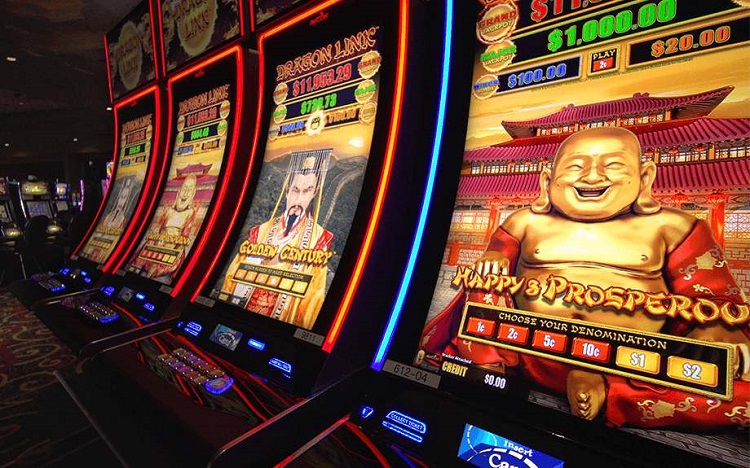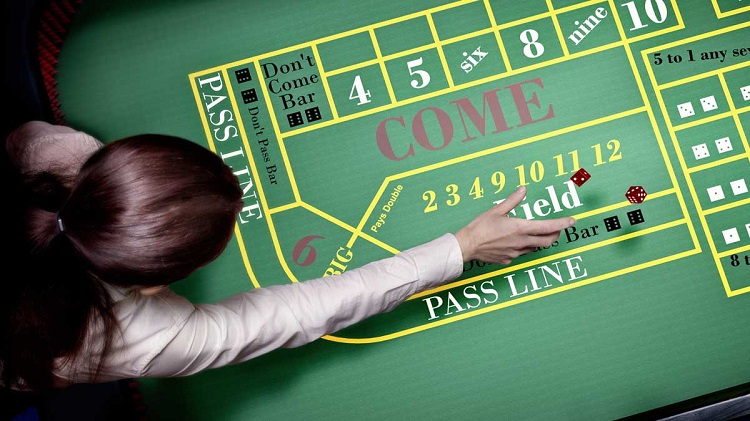When walking into a casino, few people stop to think about the deeper mechanics behind the games they play. However, understanding these mechanics is crucial, especially when it comes to the relationship between the house edge and the longevity of your bankroll. The house edge is often dismissed as “just a percentage,” but its impact on how long your money lasts at the tables is profound.
What Is House Edge?
The house edge is a term used to describe the mathematical advantage that the casino has over players in any given game. It is expressed as a percentage and represents the average amount of money the casino expects to win from a player over time.
For example, if a game has a house edge of 5%, it means that for every £100 wagered, the casino expects to keep £5 as profit over the long run. The remaining £95 is returned to players as winnings.
The house edge varies significantly between games. Slot machines, for example, can have house edges as high as 15%, while blackjack can have an edge as low as 0.5% when played with optimal strategy. This seemingly small percentage difference can dramatically alter how long a player’s bankroll lasts.
How House Edge Impacts Bankroll Longevity
The relationship between the house edge and bankroll longevity is simple: the higher the house edge, the faster you are likely to lose your money.
Small Edges Add Up Over Time
Even games with a low house edge can lead to significant losses if played for long enough. This is because the casino’s advantage compounds over time as bets are repeatedly placed.
For instance, in a game with a 1% house edge, you may lose only a small amount in the short term. But if you place hundreds or thousands of bets, that 1% gradually chips away at your bankroll.
Faster Burn with Higher Edges
Games with higher house edges can cause a player’s bankroll to disappear quickly. Slot machines are a perfect example. With house edges ranging from 5% to 15%, your money can vanish after only a few spins if luck isn’t on your side. The higher the edge, the steeper the decline in your funds.
Volatility vs House Edge
While the house edge is a significant factor, it’s not the only one that influences how long your money lasts. Volatility, or variance, also plays a role.
Understanding Volatility
Volatility refers to how much the outcomes of a game can swing. A high-volatility game, like many slot machines, may have infrequent payouts, but those payouts tend to be larger. Conversely, low-volatility games, like blackjack, offer more frequent but smaller wins.
Interplay Between Edge and Volatility
A game can have a low house edge but high volatility, meaning you might lose a large chunk of your bankroll in a short time before hitting a big win. On the other hand, a game with a high house edge but low volatility might allow your bankroll to last longer because of more consistent small wins.
How Bankroll Size Affects Longevity
The size of your bankroll also determines how the house edge impacts your playing time. A larger bankroll can absorb more losses and handle the natural ups and downs of gambling, while a smaller bankroll is more vulnerable to short-term swings.
Bankroll Management Strategies
-
Set a Budget
Decide on a fixed amount of money that you are willing to lose before you start gambling. This ensures that you won’t overspend. -
Bet Size Matters
Keep your bets small relative to your overall bankroll. A general rule is to bet no more than 1-2% of your total bankroll on a single wager. -
Choose Low-Edge Games
Focus on games with a lower house edge to extend your playing time. Blackjack, baccarat, and video poker are some good options when played correctly. -
Quit While Ahead
If you find yourself on a winning streak, it’s tempting to keep playing. However, the house edge ensures that the longer you play, the more likely you are to lose.
Examples of House Edge in Popular Games
Understanding the house edge in specific games can help players make more informed choices about where to spend their money.
Blackjack
- House Edge: ~0.5% (with basic strategy)
- Notes: Skill-based game where players can reduce the edge by learning optimal strategies.
Roulette
- House Edge: 2.7% (European) or 5.26% (American)
- Notes: The European version offers better odds due to having only one zero compared to two in the American version.
Slot Machines
- House Edge: 5-15%
- Notes: Easy to play but offers some of the worst odds for players. Payouts are random and driven by algorithms.
Craps
- House Edge: 1.4% (on the pass line)
- Notes: Multiple betting options make this game more complex, with varying house edges depending on the wager.
Baccarat
- House Edge: 1.06% (on the banker bet)
- Notes: Simple gameplay and one of the lowest house edges make this a popular choice for beginners.
The Role of Luck in Bankroll Longevity
No discussion about bankroll longevity would be complete without addressing the element of luck. While the house edge determines the casino’s long-term profit, individual sessions can deviate significantly from the average.
Short-Term Wins and Losses
It’s possible to win big in a game with a high house edge or lose quickly in a low-edge game, depending on the outcome of individual bets. This variance is what keeps gambling exciting for many players.
Why Luck Is Temporary
Over time, the house edge ensures that the casino will come out ahead. This is why luck may allow you to win in the short term, but consistent wins against the house edge are mathematically impossible.
Tips to Mitigate the House Edge
Although you can’t eliminate the house edge, there are ways to reduce its impact and extend your playing time.
Learn Basic Strategies
Games like blackjack and video poker allow players to reduce the house edge by making mathematically optimal decisions. Learning these strategies can significantly improve your odds.
Take Advantage of Bonuses
Casinos often offer promotions, such as free spins or bonus money, to attract players. Using these offers wisely can give you more opportunities to play without dipping into your bankroll.
Avoid Side Bets
Many games feature optional side bets with high payouts but also significantly higher house edges. Avoiding these bets is a simple way to stretch your bankroll.
Know When to Walk Away
Discipline is key to managing your bankroll. If you’re down to your last few chips or have hit your budget for the day, it’s better to call it quits than chase losses.
Summary of Key Points
- The house edge is the casino’s built-in advantage, expressed as a percentage of each bet.
- Higher house edges lead to faster bankroll depletion.
- Volatility and bet size also influence how long your money lasts.
- Choosing low-edge games and managing your bankroll effectively can extend your playing time.
- Luck may play a role in short-term outcomes, but the house edge dominates in the long run.


